EUROVISION HISTORY: 50 Years Ago- The 1974 Contest.
Starting tomorrow: Sweden's Top Eurovision Entries.
Caffè ☕️Lattè looks back on:
EUROVISION HISTORY
THE 1974 CONTEST
The Eurovision Song Contest was won by Luxembourg in 1972 and again the following year. The country did not want to host the annual event a second year in-a-row. The United Kingdom offered to do it. Brighton, England was selected as the host city for the 1974 Contest.
France withdrew suddenly from the Contest that year to mark the death of its President Georges Pompidou. Greece was the only country to debut in 1974, joining the other 16 countries that participated in the 19th Contest.
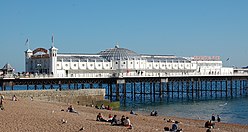

THE COUNTRIES:
Competing in the 1974 Eurovision Song Contest were the following countries:
(listed in order of performance)
FINLAND UNITED KINGDOM SPAIN
NORWAY GREECE ISRAEL
YUGOSLAVIA SWEDEN LUXEMBOURG
MONACO BELGIUM NETHERLANDS
IRELAND GERMANY SWITZERLAND
PORTUGAL ITALY
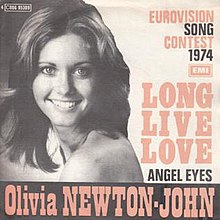
THE VOTING:
The favourite was Olivia Newton-John, who performed the UK entry “Long Live Love”. The Italian song “Si” was performed by Gigliola Cinquetti who had previously won the Contest in 1964.
A jury of 10 gave one point each to the entry they liked the most.

THE RESULTS:
One of Eurovision’s most famous winners attracted the most votes. Sweden achieved its first win in the Contest with ABBA’s entry “Waterloo”. The song gained 5 points from Finland and Switzerland. Five countries gave ABBA no points: United Kingdom, Greece, Monaco, Belgium and Italy.
1ST – SWEDEN
2ND – ITALY
3RD- NETHERLANDS
4- UNITED KINGDOM
LUXEMBOURG
MONACO
7- ISRAEL
IRELAND
9- SPAIN
BELGIUM
11- GREECE
12- YUGOSLAVIA
13- FINLAND
14- NORWAY
GERMANY
SWITZERLAND
PORTUGAL
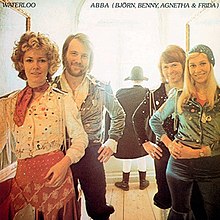
THE WINNER:
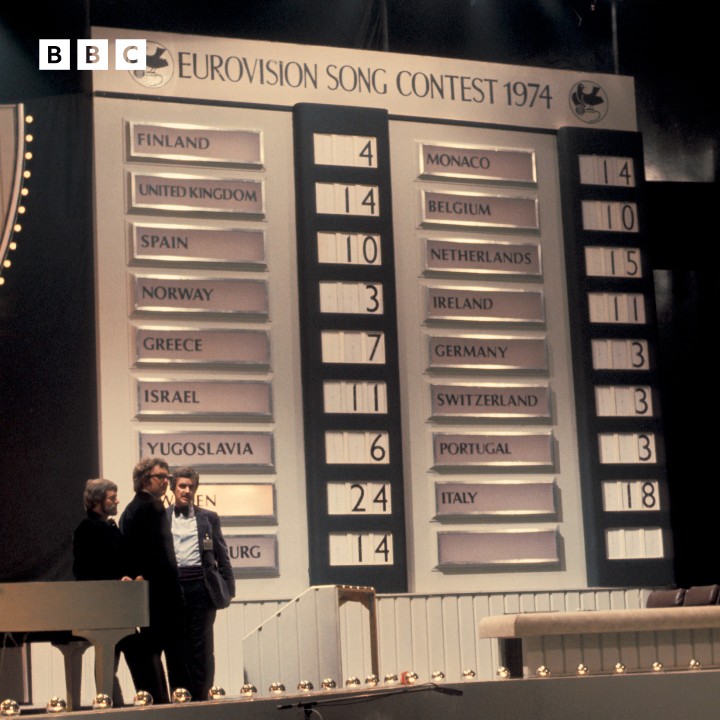
ABBA had previously tried out for Eurovision in 1973. The Swedish judges did not select “Ring Ring” in Sweden’s national selections. On the other hand, the public liked the song and the single reached #1 in the country.
The following year, ABBA was asked to try again. Two songs were contenders: “Hasta Manana” and “Waterloo”. The latter was selected and this time, it won the Swedish nationals.
After Eurovision, the single reached #1 in Britain and in many European countries as well as going Top 10 in America, Canada, Australia and New Zealand. ABBA was expected to fade away as another of Eurovision’s one-hit wonder acts. The group’s next singles failed to build on the momentum created by “Waterloo”.
In 1975, an Australian music show named “Countdown” launched 3 ABBA songs to its TV audience. All 3 reached #1: “I Do, I Do, I Do, I Do, I Do”, “Mamma Mia” and “S.O.S.”. This string saw ABBA replace itself at the top with each of the three discs. The singles’ success came to the attention of record labels in the UK and Europe. Suddenly, there was renewed interest in ABBA.
Agnetha, Bjorn, Benny and Anni-Frid (Frida) became global stars, charting high with more songs such as “Fernando”, “Money, Money, Money”, “Dancing Queen”, “Chiquitita”, “Super Trouper” and “The Winner Takes It All”. Fifty years later, ABBA remain one of the planet’s best-selling musical acts.
The group’s success has had an enduring impact on the Swedish music industry. It opened the door for other successful acts from Sweden, including Roxette, Ace Of Base and Zara Larsson. Max Martin is a Swedish songwriter / producer who has created numerous international #1 songs.
After securing its first win with “Waterloo”, Sweden has almost always finished high in the Eurovision Song Contest. In 2023, the country accomplished its seventh victory. This equalled the record previously held only by Ireland.



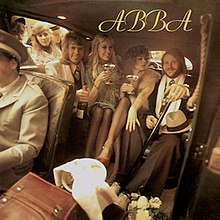
No comments:
Post a Comment